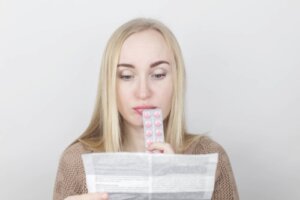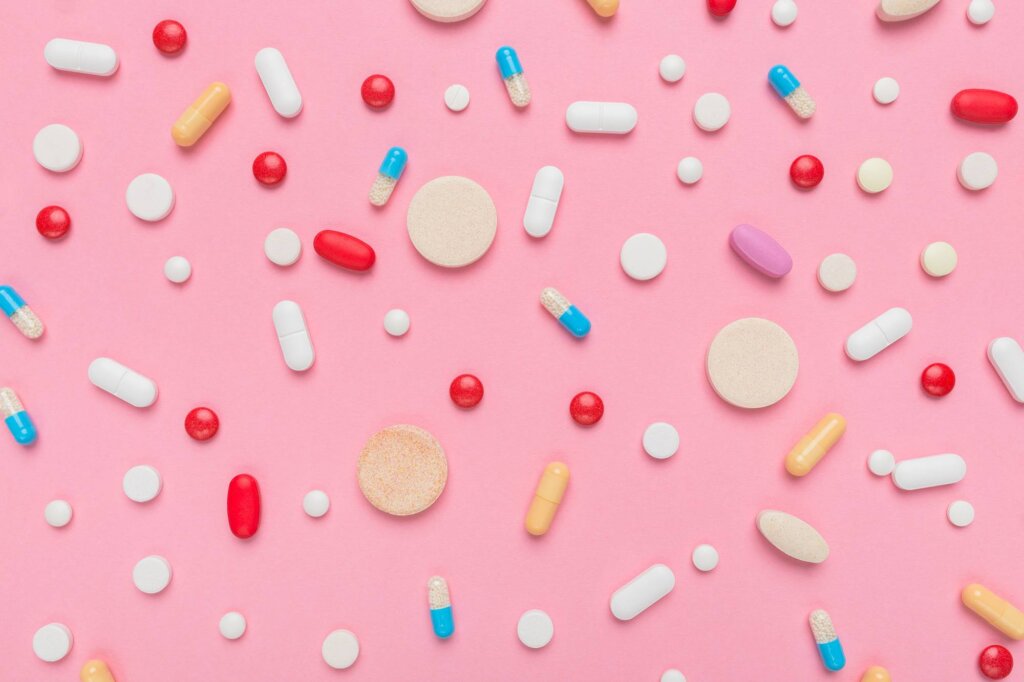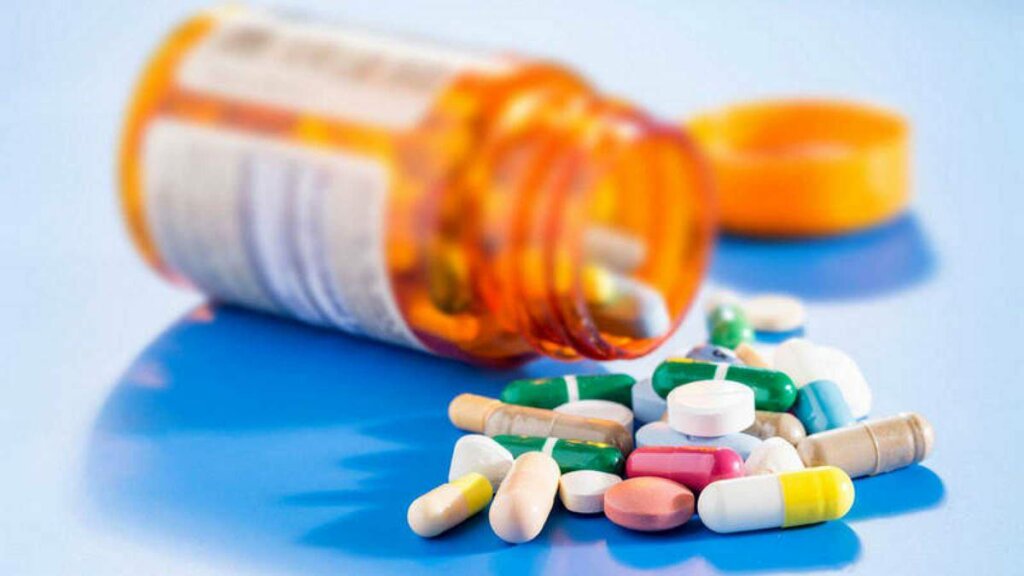Are Antidepressants Addictive?


Written and verified by the psychologist Valeria Sabater
The increasingly continuous prescription of antidepressants raises questions about whether they’re addictive drugs. These drugs aren’t only prescribed for depressive disorders. In fact, they’re frequently administered to patients suffering from chronic pain, obsessive-compulsive disorder (OCD), panic disorder, severe phobias, and post-traumatic stress.
The antidepressants that are currently available aren’t addictive. However, in certain circumstances, they can give rise to a situation of dependency. This can appear when an individual stops the treatment suddenly or has been taking it for many years.
Antidepressants are effective, but they shouldn’t be used as the exclusive strategy for overcoming a mood disorder. Psychological therapy is the best strategy against depression and to avoid relapses or sustained use of these drugs over time.
Are antidepressants addictive?
Treatment for depression and any mental condition isn’t a one-size-fits-all experience. Each individual has their own story. Moreover, there are certain social and genetic characteristics that can make people respond to psychotropic drugs in different ways. There are also a number of myths surrounding the debate as to whether antidepressants are addictive or not.
Some scientific communities unanimously conclude that these drugs don’t produce addiction and are not drugs like heroin or tobacco. For example, a study conducted by King’s College London (UK) claims that antidepressants can’t be classified as addictive substances, because there’s no indisputable evidence to support this idea.
Likewise, in the Diagnostic and Statistical Manual of Mental Disorders (DSM-V) these drugs don’t meet all the criteria to consider their effects as an addiction. But, there are certain aspects that should be clarified.
Withdrawal syndrome
Withdrawal syndrome, in the context of antidepressants, can occur when the medication is stopped inappropriately. It’s known as antidepressant discontinuation syndrome. When an individual experiences dizziness, insomnia, or irritability after stopping antidepressants, it’s considered that they’re addictive. In 2022, an investigation conducted by University College London (UK) claims that this physical response is due to the prolonged use of antidepressants.
However, the researchers insist that this form of withdrawal is completely different from the kind which appears as an effect of drug use. But, some patients confuse withdrawal syndrome with a relapse of their own depression. Indeed, the symptoms are often extremely similar. A correct diagnosis is key in these cases.
Antidepressants don’t have euphoric effects like drugs. In some specific cases, they can generate certain feelings of dependence, particularly if treatment is suddenly suspended.
Dependence and who experiences it

Some patients conclude that antidepressants are addictive because they experience signs of dependence. However, we reiterate that the experience of consuming these psychotropic drugs isn’t the same for everyone. Although they’re not frequent, the following situations can occur:
- Misuse of antidepressants can lead to dependency and adverse side effects.
- People who continue treatment with antidepressants for many years may become dependent.
- Dependence on antidepressants can appear in patients who’ve previously taken benzodiazepines for long periods of time.
The most and least ‘addictive’ antidepressants
As we’ve already indicated, antidepressants aren’t addictive. That said, it’s possible for symptoms linked to dependence to occur if the duration of treatment is prolonged.
In this last scenario, some antidepressants, due to their composition, have a slightly higher potential to produce effects related to withdrawal syndrome. We’re going to explore which drugs have the greatest and least effects in this regard.
Antidepressants with increased risk of dependence
- Desvenlafaxine. Useful in treating chronic pain/binomial depression.
- Paroxetine. Used to treat major depression, post-traumatic stress, anxiety, and panic disorder.
- Escitalopram. Used to treat major depression, generalized anxiety, panic disorder, phobias, and OCD.
- Bupropion. Used for patients with depression and to treat smoking addiction. Follow-ups are required in its administration.
Most common antidepressants with fewer side-effects
- Sertraline.
- Fluoxetine.
- Mirtazapine.
- Agomelatine.
Those who don’t follow specific physician guidelines and overdo their use of antidepressants will experience adverse effects. Among them is dependency.

How to avoid adverse effects in the consumption of antidepressants
Although there’s a false myth that antidepressants are addictive, these drugs are endorsed by medical institutions and there’s no evidence that they have such an effect. However, when taking these drugs, the recommended guidelines must be followed to the letter.
In fact, there are a series of guidelines and recommendations that protect against dependency. They’re as follows:
- Follow the recommended dosage and don’t skip any tablets.
- Follow the exact recommendations of the specialist.
- Don’t combine antidepressants with other substances, such as alcohol.
- Remember that administration maintained over time leads to dependency.
- In case of noticing adverse side effects, notify the specialist so they can adjust the dose or prescribe another drug.
- If necessary, have genetic tests to find out the possible effects of the drugs.
- Antidepressants treat the symptom, but not the root of the problem. Psychological therapy is necessary to address the diagnosis and allow the patient to stop the pharmacological treatment.
In conclusion, only the misuse of these psychoactive drugs can turn them into addictive agents. Therefore, it’s imperative to always consult with specialized professionals and respect their instructions. But, taken correctly, these are safe and effective medications that we may all find ourselves needing at some point in our lives.
The increasingly continuous prescription of antidepressants raises questions about whether they’re addictive drugs. These drugs aren’t only prescribed for depressive disorders. In fact, they’re frequently administered to patients suffering from chronic pain, obsessive-compulsive disorder (OCD), panic disorder, severe phobias, and post-traumatic stress.
The antidepressants that are currently available aren’t addictive. However, in certain circumstances, they can give rise to a situation of dependency. This can appear when an individual stops the treatment suddenly or has been taking it for many years.
Antidepressants are effective, but they shouldn’t be used as the exclusive strategy for overcoming a mood disorder. Psychological therapy is the best strategy against depression and to avoid relapses or sustained use of these drugs over time.
Are antidepressants addictive?
Treatment for depression and any mental condition isn’t a one-size-fits-all experience. Each individual has their own story. Moreover, there are certain social and genetic characteristics that can make people respond to psychotropic drugs in different ways. There are also a number of myths surrounding the debate as to whether antidepressants are addictive or not.
Some scientific communities unanimously conclude that these drugs don’t produce addiction and are not drugs like heroin or tobacco. For example, a study conducted by King’s College London (UK) claims that antidepressants can’t be classified as addictive substances, because there’s no indisputable evidence to support this idea.
Likewise, in the Diagnostic and Statistical Manual of Mental Disorders (DSM-V) these drugs don’t meet all the criteria to consider their effects as an addiction. But, there are certain aspects that should be clarified.
Withdrawal syndrome
Withdrawal syndrome, in the context of antidepressants, can occur when the medication is stopped inappropriately. It’s known as antidepressant discontinuation syndrome. When an individual experiences dizziness, insomnia, or irritability after stopping antidepressants, it’s considered that they’re addictive. In 2022, an investigation conducted by University College London (UK) claims that this physical response is due to the prolonged use of antidepressants.
However, the researchers insist that this form of withdrawal is completely different from the kind which appears as an effect of drug use. But, some patients confuse withdrawal syndrome with a relapse of their own depression. Indeed, the symptoms are often extremely similar. A correct diagnosis is key in these cases.
Antidepressants don’t have euphoric effects like drugs. In some specific cases, they can generate certain feelings of dependence, particularly if treatment is suddenly suspended.
Dependence and who experiences it

Some patients conclude that antidepressants are addictive because they experience signs of dependence. However, we reiterate that the experience of consuming these psychotropic drugs isn’t the same for everyone. Although they’re not frequent, the following situations can occur:
- Misuse of antidepressants can lead to dependency and adverse side effects.
- People who continue treatment with antidepressants for many years may become dependent.
- Dependence on antidepressants can appear in patients who’ve previously taken benzodiazepines for long periods of time.
The most and least ‘addictive’ antidepressants
As we’ve already indicated, antidepressants aren’t addictive. That said, it’s possible for symptoms linked to dependence to occur if the duration of treatment is prolonged.
In this last scenario, some antidepressants, due to their composition, have a slightly higher potential to produce effects related to withdrawal syndrome. We’re going to explore which drugs have the greatest and least effects in this regard.
Antidepressants with increased risk of dependence
- Desvenlafaxine. Useful in treating chronic pain/binomial depression.
- Paroxetine. Used to treat major depression, post-traumatic stress, anxiety, and panic disorder.
- Escitalopram. Used to treat major depression, generalized anxiety, panic disorder, phobias, and OCD.
- Bupropion. Used for patients with depression and to treat smoking addiction. Follow-ups are required in its administration.
Most common antidepressants with fewer side-effects
- Sertraline.
- Fluoxetine.
- Mirtazapine.
- Agomelatine.
Those who don’t follow specific physician guidelines and overdo their use of antidepressants will experience adverse effects. Among them is dependency.

How to avoid adverse effects in the consumption of antidepressants
Although there’s a false myth that antidepressants are addictive, these drugs are endorsed by medical institutions and there’s no evidence that they have such an effect. However, when taking these drugs, the recommended guidelines must be followed to the letter.
In fact, there are a series of guidelines and recommendations that protect against dependency. They’re as follows:
- Follow the recommended dosage and don’t skip any tablets.
- Follow the exact recommendations of the specialist.
- Don’t combine antidepressants with other substances, such as alcohol.
- Remember that administration maintained over time leads to dependency.
- In case of noticing adverse side effects, notify the specialist so they can adjust the dose or prescribe another drug.
- If necessary, have genetic tests to find out the possible effects of the drugs.
- Antidepressants treat the symptom, but not the root of the problem. Psychological therapy is necessary to address the diagnosis and allow the patient to stop the pharmacological treatment.
In conclusion, only the misuse of these psychoactive drugs can turn them into addictive agents. Therefore, it’s imperative to always consult with specialized professionals and respect their instructions. But, taken correctly, these are safe and effective medications that we may all find ourselves needing at some point in our lives.
All cited sources were thoroughly reviewed by our team to ensure their quality, reliability, currency, and validity. The bibliography of this article was considered reliable and of academic or scientific accuracy.
- Davies, J., & Read, J. (2019). A systematic review into the incidence, severity and duration of antidepressant withdrawal effects: Are guidelines evidence-based? Addictive behaviors, 97, 111–121. https://pubmed.ncbi.nlm.nih.gov/30292574/
- Groot, P. C., & van Os, J. (2018). Antidepressant tapering strips to help people come off medication more safely. Psychosis, 10(2), 142–145. https://www.tandfonline.com/doi/full/10.1080/17522439.2018.1469163
- Haddad P. (1999). Do antidepressants have any potential to cause addiction? Journal of psychopharmacology (Oxford, England), 13(3), 300–307. https://pubmed.ncbi.nlm.nih.gov/10512092/
- Horowitz, M.A., Framer, A., Hengartner, M.P. et al. (2023). Estimating Risk of Antidepressant Withdrawal from a Review of Published Data. CNS Drugs, 37, 143–157. https://link.springer.com/article/10.1007/s40263-022-00960-y
- Jauhar, S., Hayes, J., Goodwin, G. M., Baldwin, D. S., Cowen, P. J., & Nutt, D. J. (2019). Antidepressants, withdrawal, and addiction; where are we now? Journal of psychopharmacology (Oxford, England), 33(6), 655–659. https://www.ncbi.nlm.nih.gov/pmc/articles/PMC7613097/
This text is provided for informational purposes only and does not replace consultation with a professional. If in doubt, consult your specialist.







